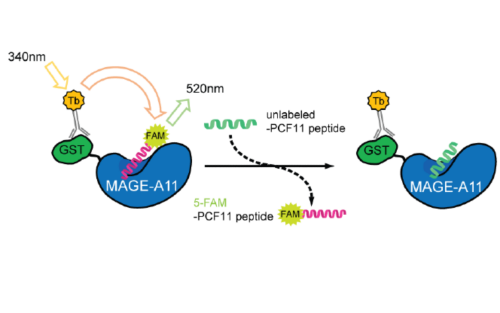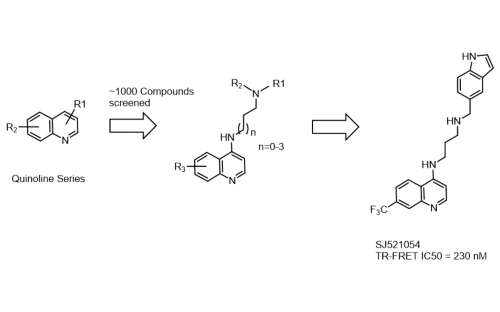St. Jude Family of Websites
Explore our cutting edge research, world-class patient care, career opportunities and more.
St. Jude Children's Research Hospital Home

- Fundraising
St. Jude Family of Websites
Explore our cutting edge research, world-class patient care, career opportunities and more.
St. Jude Children's Research Hospital Home

- Fundraising
CDK2 PROTACS for Hearing Loss and Cancer (SJ-20-0021)
St. Jude Reference #SJ-20-0021
Description
This technology is co-owned with Creighton University. Noise-induced hearing loss (NIHL) is the most common sensorineural hearing impairment. The World Health Organization recently reported that more than a billion teens and young adults worldwide are at risk of NIHL caused by loud music, and this number is rising. Acute or chronic acoustic overexposure has put more than 40 million U.S. workers at risk of permanent hearing loss. NIHL is also prevalent in military settings, costing more than $2 billion per year in veterans (VA) compensation. Noise trauma results in two types of hearing loss, depending on intensity and duration: permanent threshold shift or temporary threshold shift (PTS or TTS). Although people can recover from TTS within 24-48 hours, PTS is irreversible because it involves the loss of auditory cells in the cochlea.

A.

B.
Fig 1. Overview of Hit identification process. (A) TR-FRET assay designed to identify small molecule inhibitor for the interaction between MAGEA11 and PCF11 degron peptide and (B) representative claims and examples St Jude’s novel inhibitor of MAGE-PCF11 interaction
Keywords
Noise-induced hearing loss (NIHL), hearing impairment, cochlea, PROTAC, drug
Granted patents or published applications
Pending patent application.
Related scientific references
The publication was published March 2018 in the Journal of Experimental Medicine:
CDK2 inhibitors as candidate therapeutics for cisplatin- and noise-induced hearing loss. DOI: 10.1084/jem.20172246 (http://jem.rupress.org/content/early/2018/03/06/jem.20172246)
Licensing opportunities
We are currently seeking a partner to commercialize this invention.. Contact: chad.riggs@stjude.org
Contact the Office of Technology Licensing (Phone: 901-595-2342, Fax: 901-595-3148) for more information.